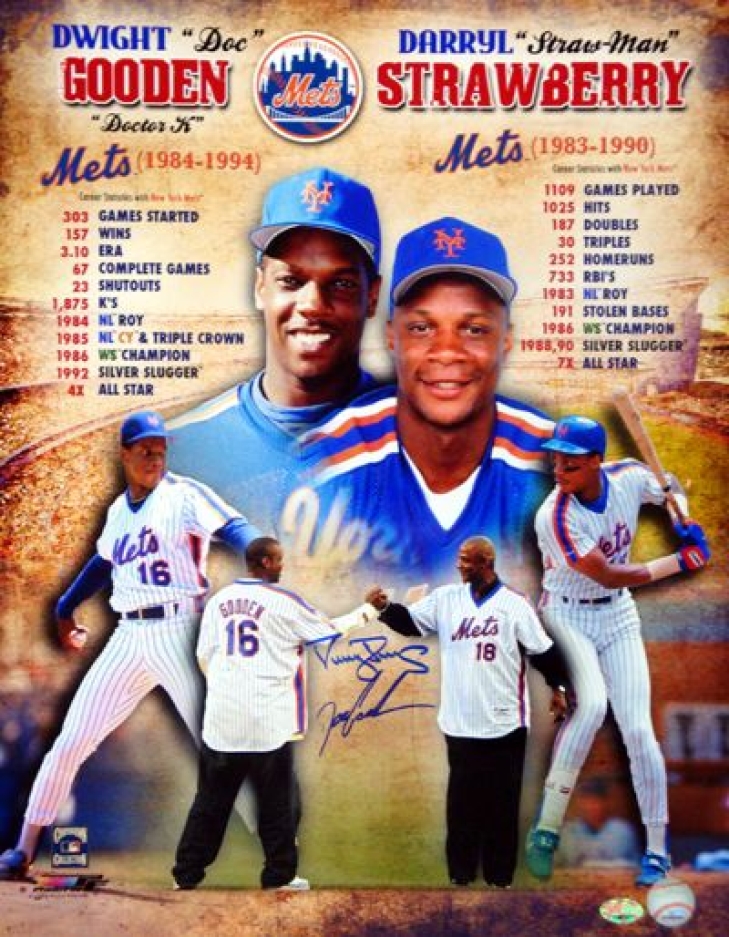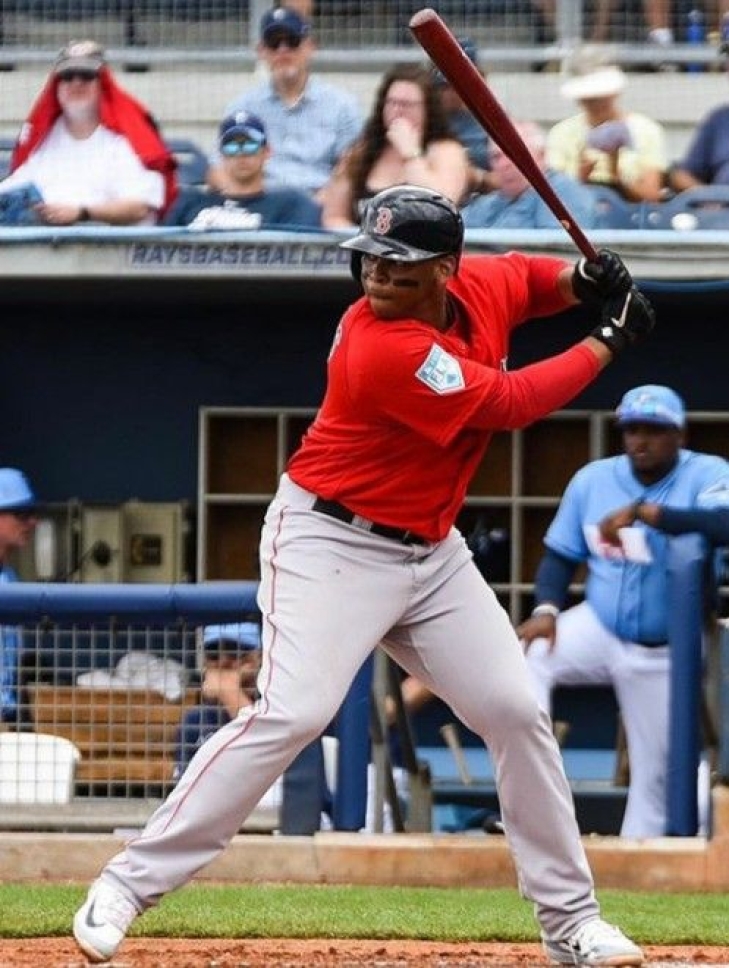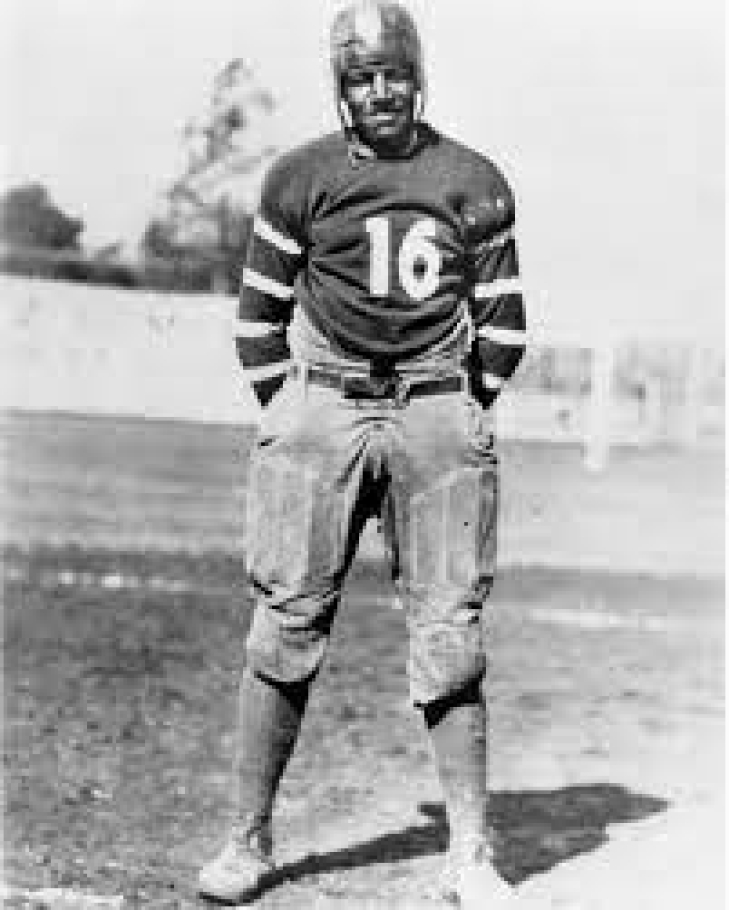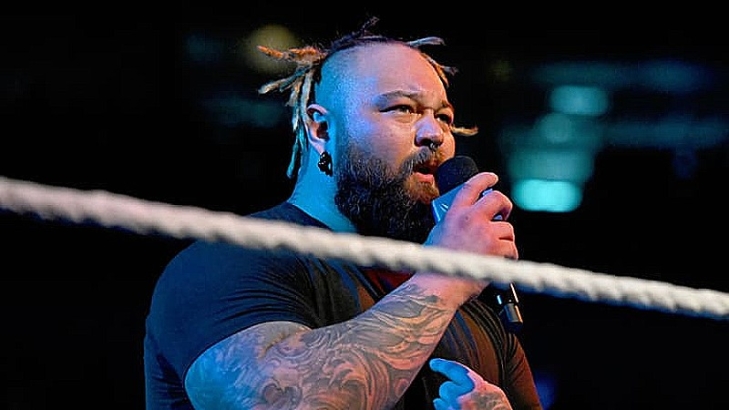
Committee Chairman
The New York Mets will retire Dwight Gooden and Darryl Strawberry's numbers next year
Regular visitors of Notinhalloffame.com know that we are slowly working on the top 50 of every major team in the NHL, NBA, NFL and MLB. Once that is done, we intend to look at how each team honor their past players, coaches and executives. As such, it is important to us that the
New York Mets have announced that next season that they will retire the numbers of Dwight Gooden and Darryl Strawberry.
In the 1980s, the Mets had the two most exciting players in the sport in Gooden and Strawberry, and they would lead the team to victory in the 1986 World Series.
Drafted fifth overall in 1982, Gooden shot up from High-A to the Majors in 1984 while still a teenager, winning the Rookie of the Year (17-9), the Strikeouts (268), FIP (1.69) and WHIP (1.073) Titles and was second in Cy Young voting. “Doc” won the Cy Young in 1985, leading the league in Wins (24), ERA (1.53), Strikeouts (268) and FIP (2.13). This was his peak, as he dealt with injuries and substance abuse, which culminated in his suspension for the entirety of the 1995 Season. The four-time All-Star never played for the Mets after, leaving behind a 157-85 record and 1,875 Strikeouts.
Strawberry was the dynamic power hitter of the squad, using his tall and lanky frame to go deep and his gifted athleticism to become one of the most popular players of his day. The first overall pick of the 1980 Draft, Strawberry joined the Mets in 1983, winning the National League Rookie of the Year. The Outfielder then embarked on an eight-year streak of All-Star Games (the last was as a Dodger) with his peak period coming from 1987 to 1990. Strawberry joined the 30-30 club in 1987, and in 1988 was the runner-up for the MVP, winning the Home Run (39), Slugging (.545) and OPS Titles (.911). In 1990, his last year with the Mets, he was third in MVP voting. With the Mets, Strawberry belted 252 Home Runs, with a .520 Slugging Percentage, while also collecting two Silver Sluggers.
Gooden and Strawberry were not without controversy, as both had dealt with off-field issues that hampered their overall performance and arguably cost themselves a spot in the Baseball Hall of Fame.
We here at Notinhalloffame.com would like to congratulate Darryl Strawberry and Dwight Gooden for earning this impending honor.
Aug 29 Update: Notinhalloffame MLB Cup Standings.
It is with great pleasure that we continue the third annual Notinhalloffame MLB Regular Season Cup, and let us explain how this works:
With every single regular season game, we anointed the best five players in the game with descending points, 5-4-3-2-1.
We knew the following:
- The top players for the MLB NIHOF Cup are not always the best in the league, as injuries keep players out of games, and a premium on staying healthy can help pile up points. It also does not hurt to be a top player on an average or mediocre team, as they can amass Cup points easier that elite players on loaded squads.
- In Baseball, it is more common than in Basketball and Hockey for a player to accrue points with a single Home Run in a game, and overall favors position players. Starting Pitchers have a hard time with approximately 30-35 Starts and throwing less innings than in previous generations. This also is true for closers, which is not made for this process.
- Please remember, that this is NOT necessarily who we think were the best players this year, and does not reflect overall consistency. Treat this the way did, as a fun process and more of a compilation of temporary statistical domination.
At present 1,036 (up from 1,009 last week) players have generated at least one Cup Point.
So, MLB players! Get your agents to work winning this into your contracts!
This is the fourteenth update, with standings as of the afternoon of August 29.
1. Shohei Ohtani: Los Angeles Angels, Designated Hitter & Pitcher: (Ranked #1 Last Week)
199 Cup Points, 130 Games, 1.53 Cup Points per Game, 44 Home Runs, 92 Runs Batted In, 19 SB, .304/.409/.663, 9.9 bWAR & 10-5, 3.14 ERA, 167 SO, 1.061 WHIP.
The Notinhalloffame Cup is built for Ohtani, who can compile points in two different avenues; the only one who can do so, although he has been shut down on the mound for the rest of the year. Ohtani continues to grow the gap between himself and his nearest competition, and we can’t see him losing the Cup. He won’t be able to compile any more stats pitching wise, but his numbers are pretty solid in that avenue. With his bat, Ohtani is the current AL leader in bWAR (9.9), Runs Scored (100), Home Runs (44), Triples (8), Walks (84), OBP (.409), Slugging (.663), OPS (1.071), OPS+ (183) and Total Bases (318), while also being third in RBIs (92), and forth in Batting (.304). The AL MVP is his to lose, and we don’t think he will.
2. Mookie Betts: Los Angeles Dodgers, Outfield: (Ranked #3, Last Week)
171 Cup Points, 124 Games, 1.38 Cup Points per Game, 35 Home Runs, 93 Runs Batted In, 10 SB, .312/.406/.606, 7.2 bWAR.
Betts has been on fire over the last two weeks, propelling himself to second over Acuna, and causing pause to think if Ohtani can be caught. In the National League, he took over the top spot in Slugging (.606), OPS (1.011) and bWAR (7.2) this past week and has moved up to fifth in Batting (.312) and third in OBP (.406). Betts has also climbed to third in RBIs (93) and fourth in Home Runs (35).
3. Ronald Acuna: Atlanta Braves, Outfield: (Ranked #2 Last Week)
156 Cup Points, 130 Games, 1.20 Cup Points per Game, 29 Home Runs, 79 Runs Batted In, 61 SB, .335/.418/.572, 6.6 bWAR.
Acuna leads all National League batters in Stolen Bases (61), Runs Scored (119), and OBP (.418). He is also second in bWAR (6.6) and Hits (175), third in OPS (.989), third in Batting (.335) and fourth in Slugging (.572). Acuna is also the runaway leader in Power-Speed # (39.3).
4. Freddie Freeman: Los Angeles Dodgers, First Base: (Ranked #4, Last Week)
151 Cup Points, 130 Games, 1.14 Cup Points per Game, 24 Home Runs, 87 Runs Batted In, 17 SB, .340/.415/.583, 5.9 bWAR.
Freeman has the NL lead in Hits (176), Doubles (50), and Total Bases (302) while also currently placing second in Batting (.333), OBP (.415) and OPS (.998) and third in Slugging (.583). He is also second in Runs (109), and fifth in Runs Batted In (87).
5. Matt Olson: Atlanta Braves, First Base: (Ranked #5 Last Week)
146 Cup Points, 130 Games, 1.15 Cup Points per Game, 43 Home Runs, 112 Runs Batted In, 1 SB, .272/.381/.597, 5.2 bWAR.
Olson has the National League lead in both Home Runs (43) and RBIs (112), and is in the top ten in all three Slash Line components. He is enjoying the best year of his career.
6. Kyle Tucker: Houston Astros, Outfield: (#7, Last Week)
139 Cup Points, 129 Games, 1.09 Cup Points per Game, 26 Home Runs, 97 Runs Batted In, 26 SB, .293/.374/.521, 4.2 bWAR.
Tucker is now the American League leader in RBIs (97) and in regards to the Slash Line, Tucker is sixth in Batting (.293), fifth in OBP (.374) and fourth in Slugging (.521), while holding strong at fourth in OPS (.901). He is also in the top ten in Hits, Home Runs, Stolen Bases and Extra Base Hits.
7. Juan Soto: San Diego Padres, Outfield: (Ranked #7, Last Week)
138 Cup Points, 132 Games, 1.05 Cup Points per Game, 25 Home Runs, 78 Runs Batted In, 6 SB, .260/.400/.483, 4.1 bWAR.
Soto is the National League leader in Walks (110) and is fourth in OBP (.400), and seventh in OPS (.883).
8. (TIE) Corbin Carroll: Arizona Diamondbacks, Outfield: (Not in the Top Ten, Last Week)
128 Cup Points, 127 Games, 1.01 Cup Points per Game, 22 Home Runs, 64 Runs Batted In, 40 SB, .279/.361/.515, 4.8 bWAR.
Christian Walker out. Corbin Carroll back in. The Diamondbacks have the likely National League Rookie of the Year in Carroll who is in the top ten in bWAR, Runs and Stolen Bases and is first in Triples (8).
8. (TIE) Rafael Devers: Boston Red Sox, Third Base: (Ranked #8 Last Week)
128 Cup Points, 124 Games, 1.02 Cup Points per Game, 29 Home Runs, 88 Runs Batted In, 2 SB, .269/.345/.512, 2.9 bWAR.
Devers remains a surprise being so high as he was not in the All-Star Game, nor was considered a significant snub. He and is currently fourth in the AL in Home Runs (29) and RBIs (88), and fifth in Slugging (.512).
10. Alex Bregman: Houston Astros, Third Base: (Ranked #10, Last Week)
127 Cup Points, 132 Games, 0.96 Cup Points per Game, 21 Home Runs, 87 Runs Batted In, 3 SB, .261/.363/.440, 4.0 bWAR.
Bregman remains in the top ten, giving Houston two to join the Dodgers and Braves in the top ten. He is in the top five in Walks (76), RBIs (87) and Runs (83).
Arizona’s Christian Walker fell out of the top ten.
Our next update will be the afternoon of September 4.
The Pro Football Hall of Fame Revisited Project: 1948 PRELIMINARY VOTE
Thank you for all of you who have participated in the Pro Football Hall of Fame Revisited Project, and if you are unaware of what that is, simply, we acted as if the PFHOF had their first class in January of 1946?
We have completed the two years thus far, and here we are with a third year.
For “1948” a Preliminary Vote with 127 players whose playing career ended by 1940. We are also following the structure in that players have 20 years of eligibility, and if they do not make it into the Hall, they are relegated to the Senior Pool.
Each voter is asked to select 25 names from the preliminary list, with the top 25 vote getters named as Semi-Finalists.
A week later, the voters will be asked to pick 15 names from the 25 Semi-Finalists, and a week after, they will pick five from the remaining 15. We will continue this process weekly until we catch up to the current year.
29 people participated in the 1948 Preliminary Vote which yielded the following result:
This is for the “Modern Era”
*Bold indicates they advanced to the Semi-Finals:
|
Player |
Year of Eligibility |
Vote Total |
|
Duke Slater T |
12 |
29 |
|
Jimmy Conzelman* BB-TB-HB-E |
14 |
28 |
|
Cliff Battles TB-FB-WB-DB |
6 |
28 |
|
Guy Chamberlin E-WB |
16 |
27 |
|
George Trafton C |
12 |
27 |
|
Benny Friedman TB-DB |
9 |
27 |
|
Mike Michalske G-T-LB-BB |
6 |
27 |
|
Johnny Blood TB-HB-WB-BB-DB |
5 |
27 |
|
Joe Guyon WB-TB-BB-FB |
16 |
26 |
|
Pete Henry T |
15 |
26 |
|
Verne Llewellen B |
11 |
26 |
|
Steve Owen T-G |
10 |
26 |
|
Link Lyman T |
9 |
26 |
|
Ray Flaherty E-DE |
8 |
26 |
|
Lavvie Dilweg E |
9 |
24 |
|
Walt Kiesling G-T |
5 |
24 |
|
Red Badgro E-DE |
7 |
22 |
|
Ox Emerson G-C |
5 |
22 |
|
Clark Hinkle FB-LB-HB-DB |
2 |
22 |
|
Dutch Sternaman HB-QB-FB |
18 |
21 |
|
Turk Edwards T |
3 |
21 |
|
Beattie Feathers HB-WB |
3 |
12 |
|
Cecil Isbel TB-HB |
1 |
12 |
|
Swede Youngstrom G-T-E-C |
18 |
10 |
|
Steamer Horning T |
20 |
9 |
|
Harry Robb B |
20 |
8 |
|
Pete Stinchcomb HB |
19 |
8 |
|
Hunk Anderson G-C |
18 |
8 |
|
Joey Sternaman QB-BB |
15 |
7 |
|
Tony Latone B |
13 |
6 |
|
Whizzer White TB-HB |
2 |
6 |
|
Cub Buck T |
18 |
5 |
|
Gus Sonnenberg T-FB-TB |
13 |
5 |
|
George Christensen T-G |
4 |
5 |
|
Duke Henry E-T-G-FB |
13 |
4 |
|
Joe Kopcha G |
10 |
4 |
|
Nate Barragar C-G |
8 |
4 |
|
Jack Manders HB-FB |
3 |
4 |
|
Gaynell Tinsley E |
3 |
4 |
|
Bob Koehler FB |
17 |
3 |
|
Wildcat Wilson TB |
17 |
3 |
|
Willis Brennan G-T |
16 |
3 |
|
Duke Osborne G-C |
15 |
3 |
|
Al Nesser G-E-C |
12 |
3 |
|
Stumpy Thomason WB-TB-BB-HB |
11 |
3 |
|
Luke Johnsos E |
7 |
3 |
|
Ace Gutkowski FB-TB |
4 |
3 |
|
Milt Gantenbein E |
3 |
3 |
|
Jim McMillen G |
15 |
2 |
|
Tillie Voss E-T |
14 |
2 |
|
Red Dunn BB-TB |
12 |
2 |
|
Ray Kemp T |
10 |
2 |
|
Zuck Carlson G-T-C-LB |
7 |
2 |
|
Glenn Presnell T-B |
7 |
2 |
|
Father Lumpkin BB |
6 |
2 |
|
Buster Mitchell E-T |
6 |
2 |
|
Potsy Jones G |
5 |
2 |
|
Ozzie Simmons HB |
4 |
2 |
|
Rip King B |
18 |
1 |
|
Lou Smyth B |
17 |
1 |
|
Doc Alexander C-T-G-E |
16 |
1 |
|
Tex Grigg B |
16 |
1 |
|
Fred Gillies T |
15 |
1 |
|
Frank Racis G-T-E |
14 |
1 |
|
Two-Bits Honan B |
13 |
1 |
|
Milt Rehnquist G-C-T |
13 |
1 |
|
Jug Earp C-T-G |
11 |
1 |
|
Chuck Kassel E |
10 |
1 |
|
Joe Lillard HB |
10 |
1 |
|
Hap Moran B |
10 |
1 |
|
Dick Stahlman T-G |
10 |
1 |
|
Bo Molenda FB-HB-BB |
9 |
1 |
|
Al Rose E |
7 |
1 |
|
Carl Brumbaugh B |
5 |
1 |
|
Ernie Caddell WB-TB-BB-FB |
5 |
1 |
|
Kink Richards B |
4 |
1 |
|
Jack Johnson T |
3 |
1 |
|
Eggs Manske E |
3 |
1 |
|
Bernie Masterson QB |
3 |
1 |
|
Jim Barber T |
2 |
1 |
|
Tony Blazine T |
2 |
1 |
|
Johnny Drake B |
2 |
1 |
|
Armand Niccolai T-G |
1 |
1 |
|
Dinger Doane FB |
16 |
0 |
|
Tex Hamer B |
16 |
0 |
|
Russ Hathaway T-G |
16 |
0 |
|
Ben Jones FB-BB-WB |
15 |
0 |
|
Clyde Smith C |
15 |
0 |
|
Herb Stein C-G |
15 |
0 |
|
Bub Weller T-E |
15 |
0 |
|
Bull Behman T-E |
12 |
0 |
|
Doc Elliott B |
12 |
0 |
|
Hec Garvey G-E-T-C |
12 |
0 |
|
Jim Laird B-G-T |
12 |
0 |
|
Dick O'Donnell E |
12 |
0 |
|
Don Murry T-E-G |
11 |
0 |
|
Curly Oden BB |
11 |
0 |
|
Jack Spellman T-B |
11 |
0 |
|
Rudy Comstrock G-T |
10 |
0 |
|
Al Graham G |
10 |
0 |
|
George Kenneally E |
10 |
0 |
|
Les Caywood G-T |
9 |
0 |
|
Butch Gibson G-T |
9 |
0 |
|
Jack McBride FB |
9 |
0 |
|
Tom Nash E |
9 |
0 |
|
Bill Senn B |
9 |
0 |
|
Doug Wycoff B |
9 |
0 |
|
Bill Morgan T |
7 |
0 |
|
Bill Owen T-G |
7 |
0 |
|
Bert Pearson C-G |
7 |
0 |
|
Clare Randolph C |
6 |
0 |
|
Harry Ebding E |
6 |
0 |
|
Lon Evans G-T |
6 |
0 |
|
Keith Molesworth HB-QB |
5 |
0 |
|
Lou Gordon T-G-E |
5 |
0 |
|
Len Grant T |
5 |
0 |
|
Swede Hanson B |
5 |
0 |
|
Bill Karr E |
5 |
0 |
|
Ookie Miller C-G-LB |
5 |
0 |
|
Joe Zeller G-E |
5 |
0 |
|
Bree Cuppoletti G |
4 |
0 |
|
Bill Smith E |
4 |
0 |
|
Ernie Smith T |
4 |
0 |
|
Johnny Dell Isola G |
3 |
0 |
|
Ralph Kerchaval WB |
3 |
0 |
|
Frank Bausch C |
2 |
0 |
|
Ed Danowski B |
2 |
0 |
This is for the “Senior Era”
*Bold indicates they advanced to the Finals:
|
Blondy Wallace |
N/A |
27 |
|
Charles Follis |
N/A |
24 |
|
Henry McDonald |
N/A |
20 |
|
Ted Nesser |
N/A |
19 |
|
Sol Butler |
N/A |
17 |
|
Bob Shiring |
N/A |
15 |
|
Herman Kerchoff |
N/A |
13 |
|
Gul Falcon |
N/A |
7 |
|
Tam Rose |
N/A |
3 |
Next Saturday, we will be posting the results of the Semi-Final Vote of the 1948 Pro Football Hall of Fame Revisited.
Thank you to all who contributed, and if you want to be a part of this project, please let us know!
RIP: Bray Wyatt
A day after Terry Funk passed away, another legacy wrestler left us. Bray Wyatt, born Wyndham Rotunda, died at 36 following a heart attack.
The grandson of Blackjack Mulligan and son of Mike Rotunda, and nephew of Barry and Kendall Windham, Wyatt began wrestling in 2009 in the WWE developmental territories, adopting multiple personas before settling on Bray Wyatt. The character was initially a bayou cult leader, who along with Luke Harper and Erick Rowan, would form the Wyatt Family. After getting over in NXT, the trio were called up to the WWE.
The Wyatt family got over and Bray would face and lose to John Cena at Wrestlemania XXX. He continued on and became a three-time World Champion in the WWE, utilizing multiple gimmicks, which included “The Fiend”, a supernatural character that utilized horror elements.
Let go in a cost-cutting measure, Wyatt returned in late 2022, but it was a brief run, that ended abruptly due to hat we now know was due to health reasons.
Wyatt was reported to return in recent weeks but that obviously was not the case. He leaves behind his wife and four children.
We here at Notinhalloffame.com would like to extend our condolences to the fans, family and friends of Bray Wyatt.





